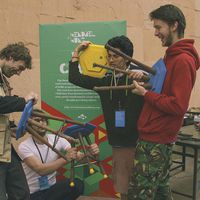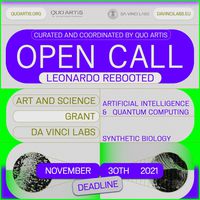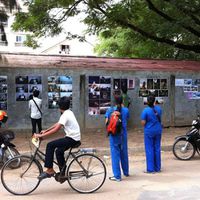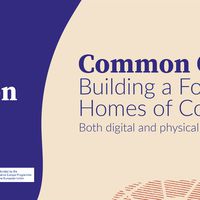UnBox Festival | Bangalore - Interview
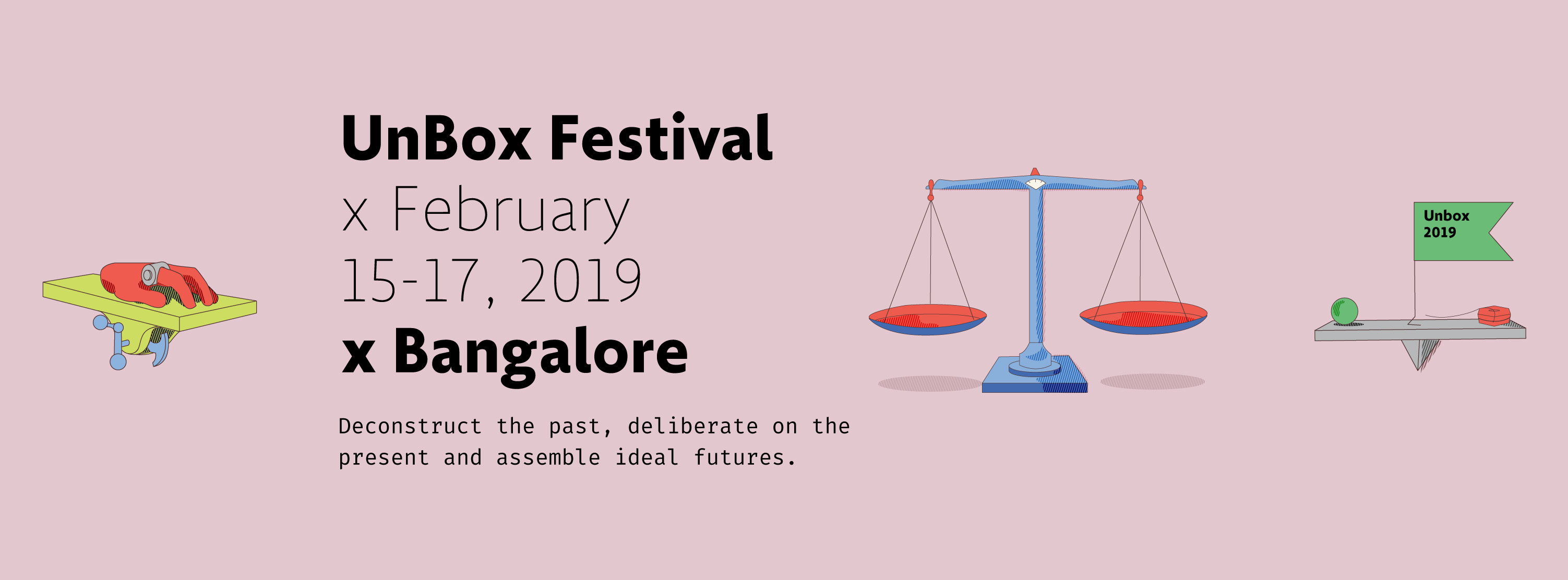
As part of the media partnership with culture360.ASEF.org, we have interviewed Babitha George, co-founder of the UnBox Festival. The Festival has recently concluded its 5th edition in Bangalore, India. We asked Babitha George, the co-founder and lead of this year's Unbox Festival, to share with us more about how the festival went this year and how it has grown since its beginnings in 2011.
You have just successfully concluded the 5th edition of UnBox Festival, what has changed since its inception? How has the festival evolved and matured since 2011?
The festival was initially conceived as a celebration of multi-disciplinary collaboration. Back in 2011, there weren’t too many platforms that brought together practitioners from different spaces and disciplines together. Over the years, we have experimented not just with the festival format, but also with labs, residencies, workshops and smaller events. Through these formats and newer contexts and questions, we realised that UnBox is a valuable platform to engage critically with some of the complex issues that face us as a society today. Thus, while we have retained the celebratory nature of the festival, there is also more critique and questions now and an acknowledgement that we need to bring different expertise and practices together if we are to even begin to consider some of these complex questions. The last edition of the festival sought to engage with a diverse range of these questions ranging from technology, design, conservation, craft, food ecologies and many more, by bringing in new participants and perspectives.
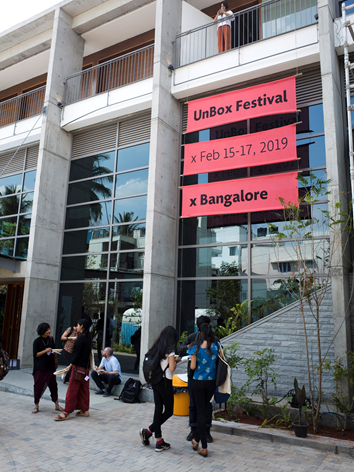
The conversations about the intersection between digitisation, technology and arts and culture have been growing. Have you noticed any shifts in the conversations and trends surrounding the topics of digital, technology, arts and culture over the past few years?
A few years back, there seemed to be endless optimism around digital and technology, as things have panned out within the complex nature of societies such as India, we are realising that this is now more layered and complicated. With the historic advances of the past few years that have changed how we connect with the world and with each other, technology seems more indispensable and complex than before. While it opens new possibilities for justice, economic empowerment and even happiness and personal fulfilment, it also comes with immense emerging risks. Proprietary algorithms are making high-stake decisions about people’s lives, data is being shared and sold without consent, online harassment is becoming persistent alongside increasing disinformation and fake news. How do we engage with technology in a manner that is ethical and cognizant of the problems of centralisation and opaqueness? How do we bring back eroded public trust? How do we allow communities to actively shape and participate in their own futures? How do we provide trustworthy and secure digital services that support communities?
These are some of the shifts that have happened in recent years and that couldn’t be more pressing in their relevance and significance.
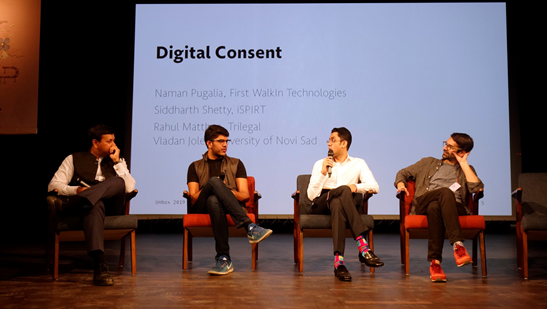
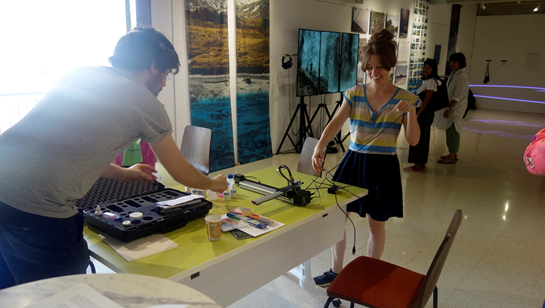
How did this year’s edition of UnBox Festival go? Did it meet your expectations in terms of participation and engagement? Anything worth highlighting?
The 2019 edition of the UnBox festival created a space for participants to deconstruct the past, deliberate on the present, and imagine diverse futures. The festival programme responded to the emergence of a new subculture – one that straddles the spirit of innovation, is fostered by an enterprising spirit, and invites sensory engagement.
A total of 328 participants immersed themselves in the stories and learnings shared across three days of UnBox. Additionally, the Open House brought in another 100 audience members to engage with projects & connect with participants. With a spirit of discovery and learning, the festival brought together designers, artists, technologists and researchers who explored disruptive ideas and pushed the boundaries of their practices. Young professionals made up the majority of participants, along with emerging and established leaders from the fields of design, art, culture, technology and social innovation.
Over the 3 days, we had 328 participants, with 100 Indian collaborators, 32 international collaborators. The 92 pieces of programming included 28 workshops, 32 panel discussions and dialogues, and 3 evenings of performances.
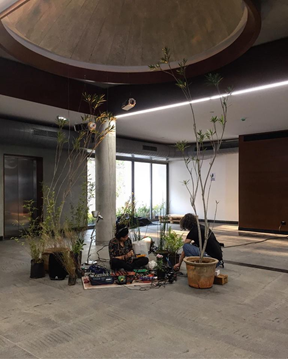

The past 4 editions of UnBox have been held at New Delhi, this edition however, is held at Bangalore. Was there any reason as to why Bangalore was chosen as the venue? Were there any interesting trends or common features that were raised during the event between both cities?
We held the first four editions of the festival in Delhi and we are returning to the festival format after a break of about 4 years. We wanted to explore a new city, find new friends and collaborators and explore new questions and themes, as well as explore what a new city would give us in terms of venues, speakers and audiences. Being in Bangalore, gave the festival fresh impetus this year.
Lately, both the festival and other formats such as the labs have explored the digital divide. Bangalore does tend to get equated with technology and innovation; however, with UnBox we got to explore a critical but often unexplored side of this with questions around the digital divide, access, ethics, decentralised technologies, archiving and documentation etc. While these questions around technology provided a pronounced thematic bent at this year’s festival, we also continued to explore a larger and more contextual set of issues as well, such as those around cultural conservation, ecologies and inclusivity.

Can you tell us what to expect for the next edition of UnBox Festival?
We are still recovering from this one, so it feels a little early to comment on this! We invest a lot of time and energy into developing the festival conceptually and it needs time and deliberation for conversations to mature and for us to find the right people, spaces and partners. While we hope that we can announce another festival soon, in the meantime we are hoping to kick-start some more projects, labs and residencies as well as the next edition of our new media festival EyeMyth in November in Mumbai.
Babitha George, a partner in Quicksand, believes in the strength of interdisciplinary approaches; her prior work in education prompted her to actively think about non-traditional roles of design thinking, subsequently leading her to steer Quicksand's social innovation projects. Babitha anchors Quicksand's Bangalore studio and is also on the Advisory Board of the Victor Papanek Foundation.
Similar content
from - to
15 Feb 2019 - 17 Feb 2019
from - to
07 Feb 2013 - 10 Feb 2013
deadline
30 Nov 2021
from - to
02 Feb 2012 - 05 Feb 2012
deadline
10 Aug 2015
from - to
28 Oct 2020 - 29 Oct 2020


